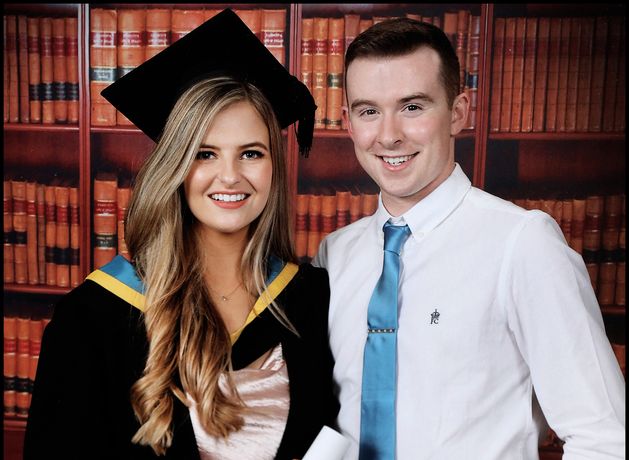Headline: BBC Faces High Court Defamation Case Over Criticism of Victim Impact Statement
In a significant legal development, Ryan Casey, the boyfriend of the late Ashling Murphy, has initiated High Court defamation proceedings against the BBC. The case stems from remarks made on the BBC Northern Ireland show The View, which critiqued Mr. Casey’s emotional victim impact statement during the murder trial of Jozef Puska. The proceedings, commenced on August 1, 2023, have drawn attention not only for their legal implications but also for the heated public discourse surrounding crime, media portrayal, and societal values.
Details of the Case
On January 12, 2022, Ashling Murphy was tragically murdered while jogging along the Grand Canal in Tullamore. Jozef Puska, a Slovakian national who had resided in Offaly since 2015, was sentenced to life in prison after being convicted of stabbing Ms. Murphy 11 times. In a deeply moving statement before the court, Mr. Casey described Puska as the “epitome of pure evil” and conveyed the profound pain of losing someone who represented the best of Irish society.
His victim impact statement not only expressed grief but also included strong critiques of societal issues, lamenting the resources allocated to Puska while condemning his actions. He stated, “It just sickens me to the core that someone can come to this country, be fully supported in terms of social housing, social welfare, and free medical care for over 10 years.” Mr. Casey’s remarks highlighted his belief that such heinous acts would not have been permitted in the Ireland he once knew.
Media Reactions
Following the emotional testimony, The View aired on November 30, 2023, in which BBC host Mark Carruthers and journalist Kitty Holland discussed elements of Mr. Casey’s statement. Holland criticized parts of his commentary, arguing that they were unhelpful and had been seized upon by far-right groups, which detracted from the overall discussion about violence against women, particularly by Irish men.
Holland remarked, “While I understand that Mr. Casey was heartbroken, there were elements in his comments that were not good.” This critique raised questions about the responsibilities of media in presenting sensitive topics and sparked a larger debate about how society addresses such issues.
Legal Support and Institutional Context
Ryan Casey’s legal representation comes from Brian P Adams & Company, a small firm based in Tullamore. In an official statement regarding the ongoing legal proceedings, Marianne Deely, a partner at the firm, confirmed their role, saying, “We will not be making any further comment in relation to these ongoing proceedings at this time.” The BBC has retained the services of Dentons, a global law firm that recently opened its Irish office and has recruited notable solicitors like Karyn Harty, known for her expertise in defamation.
The BBC’s spokesperson stressed, “As this is a live legal matter, we have no comment to make.” The case follows a broader trend where media outlets face scrutiny over their handling of sensitive legal matters, particularly those involving violent crime and victims’ rights.
Implications for Media and Society
This case is poised to have significant implications for how media addresses narratives surrounding crime, particularly in the context of defamation and the representation of victim voices. As the digital age complicates the landscape of news reporting, the balance of addressing real societal issues while avoiding sensationalism remains critical.
Public discourse is increasingly polarized, and the unfolding legal scenario may influence how media organizations approach their reporting of similar cases in the future. It could lead to a reassessment of the ethical responsibilities of journalists when discussing tragic events and the impact of their commentary on public sentiment and policy.
As the hearing unfolds, observers from legal, media, and societal perspectives are watching closely. The outcome could set precedents concerning defamation law in Ireland, affect media standards in coverage of victim statements, and ultimately shape public discussions around crime prevention and societal reform.
The ongoing discourse surrounding Ryan Casey’s defamation case invites reflection on the responsibilities of the media, the consequences of public commentary on sensitive issues, and the evolving nature of societal attitudes toward violence and justice. Readers are encouraged to consider the implications of such cases for both media integrity and victim advocacy.
As opinions form and debates flourish, we invite readers to share their thoughts on this unfolding situation. How do you view the intersection of media and victim advocacy in our society today?

